Is Addiction a Disease? (Debate Essay)
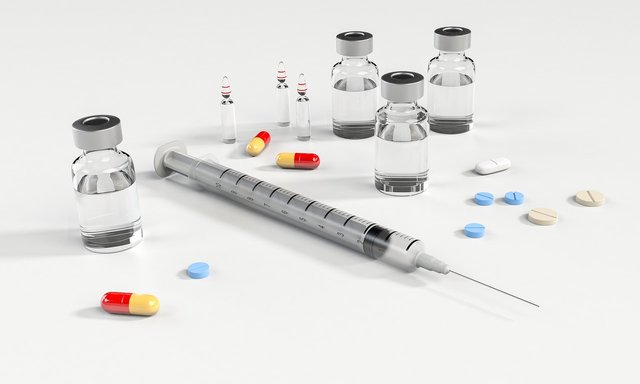
Introduction
Addiction is becoming a severe problem in the United States, opioid addiction is at a historic high as of 2018. It is affecting as many as 2 million people based on current treatment center records (National Survey on Drug Use and Health, 2017). The federal government is making statement on this subject with equal concern from all sides of the political spectrum. There needs to be a dialogue in our country to find a way to either prevent users from developing or treat those already effected, what we are doing now is not working. The way society can approach this problem is determined on how we define addiction. Is it a disease or is choice? A survey done this year with thousands of respondents at the Associated Press has found that most people consider addiction to be a disease (Perrone, 2018). Although, popular opinion is not a good measure if something is a fact, up to one third of Millennials surveyed do not believe the world is round in stark contrast to empirical science. It is debatable that addiction is a disease because of genetic studies, developmental brain data and environmental factors. It is counter-debatable that addiction is not a disease because of biological science, political bias and nature of the definitions of these words.
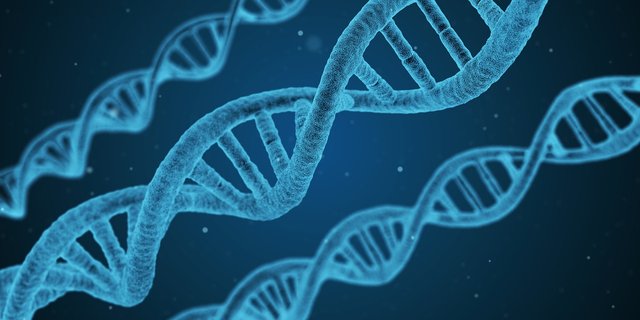
Genetics
Addiction is a disease because of genetics. It is undeniable that some people that are born in families with addicts have a higher probability of becoming addicts as well. A countless number of journals and studies have been conducted proving that there is a genetic factor to the ability of abstain and inability to stop habits once started (Ray, L. A., & Hutchison, K. E., 2010). Many twins studies have found even If separated at birth the twins that share identical genetics raised in different environments both can become smokers or drinkers, and even sometimes prefer the same brands (Agrawal, A. and Lynskey, M. T., 2008). These studies suggest that addiction stems from a genetic disposition to accepting small immediate gratification opposed to accepting larger prolonged gratification. This is the science of being born with a genetic trait to possess or not posses willpower to resist compulsion that could turn into addiction in the right settings.
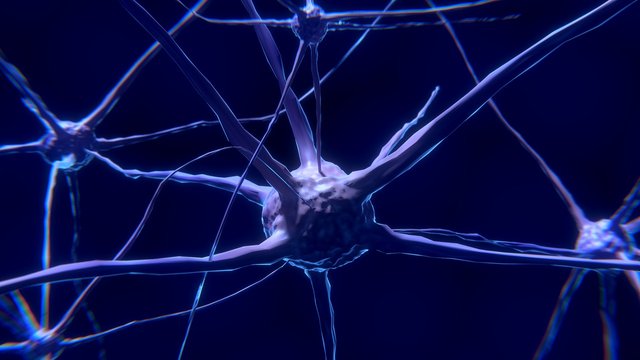
Development
Addiction is a disease because of changing brain chemistry in developmental years of young addicts. It has been proven that drugs change the pathways in the brain and block neurotransmitters that are produced. Some neurotransmitters are also increased in production and some are decreased with drug use. This could change the way the brain function in the long term, developing drug altered personalities. The degree of neuroelectrical energy in certain areas changes in the brain with drug abuse and has be physically observed with MRI and EKG readings (Nordahl, T. E., 2003).
Some of these changes in the brain are hard to correct, and can lead to stunted growth or misgrowth of parts of the brain. The earlier a person begins using drugs, the stronger the addiction they will develop due to the malleability of the brain at a young age. (Brown, S. A., 2009). If the brain is warped at a young age, it is like planting a tree next to a wall. The tree will grow quickly on one side but not on the side obstructed. If the wall is removed it will take years for the tree to grow into a healthy shape if ever at all.

Environment
Addiction is a disease because of environmental factors. People that grow up in a family with addicts passively learn addict behavior. Social learning theory teaches that children emulate their parents, and develop similar habits. Longitudinal studies conducted by the University of Seattle have proven Children that grow up in a household that has a smoking parent are twice as likely to be smokers as adults (Hill, K. G., Hawkins, J. D., Catalano, R. F., Abbott, R. D., & Guo, J., 2005).
A study was conducted on 70 children of addicted mothers. Some with mothers that continued to use during pregnancy with babies born addicted to drugs and some that quit during pregnancy with babies not born addicted to drugs. In the longitudinal part of the study they found it did not matter if the mother used drugs during the pregnancy, most children ended up using drugs as well. Many of the children showed significantly lower IQ compared to those that were not born to drug addict mothers. (Bauman, P., Levine S., 2009). Low IQ could be a contributing factor to the rate of addiction in people.
Humans do not choose the environments that they develop in, they can only escape conditions as soon as they become adults. Thus, an argument could be made that addiction is not the fault of choice but the fault of circumstance. This could define addiction as a social disease created by condition.
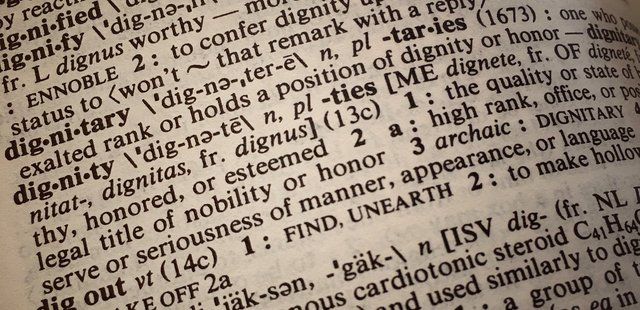
Definition & Criteria
Addiction is not a disease because of legal and technical definitions. If we simply look at the two definitions we are talking about, there is a clear divide between meanings. The Webster Dictionary defines disease as “A disorder of structure or function in a human, animal, or plant, especially one that produces specific signs or symptoms or that affects a specific location and is not simply a direct result of physical injury.”. It also defines addiction as “the fact or condition of being addicted to a particular substance, thing, or activity.” (Wyld, 1963).
A Dictionary is created by a counsel of authorities on the English language, and they would not have separated these two words for something that is the same. They would keep the words the same if their definitions were interchangeable. Generally when two words are similar, they are referenced as a simile of each other. This is not true of the words addiction and disease in the current accepted dictionary. The criteria of a disease by medical terms is the presence of a primary measurable deviation from a physiologic or anatomical norm. Because of this medical definition, criminal courts do not hand down verdicts of “not guilty by virtue of mental illness” For drunk drivers who kill pedestrians (Morse, S. J., 2009).
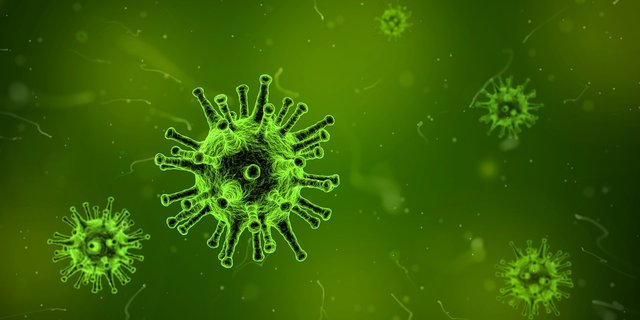
Biology & Behavior
Addiction is not a disease because of biological and behavioral reasons. The effect of substance abuse and activities that produce addiction tell how addiction is not a disease. Direct action in the brain by the manipulation of dopamine transmissions are the cause of most addiction. Addiction could also be a manipulative response to an underlying condition, such as depression or a nonspecific inability to cope with the stresses of life. In which the abuser uses drugs as a maladaptive way to cope. There are no diseases in medicine that are brought about by choice. To stop addiction is to change a product of behavior.
Disease is cured by fixing a broken bodily system. This is usually a biological function that is disrupted, like a human organ. Addiction is self-acquired and it is not transmissible or contagious like most medical disease. The brain is a system, behavior is the product. No addiction treatment cures the brain like any medical procedure or drug that cures a disrupted organ. Some drugs can block or encourage production of neurotransmitters, but no drugs to date change the actual function of the brain. All addiction treatment seeks to change behavior.
Addiction is interaction with external items, and It can be stopped by removing those external items. No disease is cured by removing external items. Addiction is increased by adding external items and is a behavioral compulsion, which is not a disease (Holden, T., 2012). The brain is elastic, behavior changes due to new motivation, knowledge and environment. The brain fixes itself in some instances. If addiction is a disease, then this seeks to disprove the fact that our brains can self-repair. Ultimately that shifts the blame to someone else for behavior (Bickel, W. K., Quisenberry, A. J., Moody, L., & Wilson, A. G., 2015).

Politics
Addiction is not a disease because bias committees seek to change the word in the dictionary. Words & language are being weaponized to push agenda. These changes are for political and social reasons instead of factual and scientific reasons. Social bias is used in logic for the change in wording (Reith, G., 2004).
In this frame of logic using the word “Addiction” as a definition alone for substance abuse conveys a message that “people will be shunned for their actions”. Use of the word “Disease” for substance abuse will convey “people will get treatment”. This is a biased view of society ignoring personal responsibility.
The real results for using this kind of wording of “Addiction” for substance abuse is that “it is the person's personal responsibility” where they end up thinking “I need to stop doing this”. Real use of “Disease” for substance abuse is “it is not the person's personal responsibility” leaving them thinking “There is nothing I can do, I have a disease”.
This leaves the substance abuser with a victim mentality. Typically this is to get protection, sympathy, acceptance, and even special benefits from their new status. This new wording could potentially increase the number of addicts, and lowers the amount of treatment sought by them. Words and definitions are important.
In conclusion, addiction can be debated either way as a disease or not a disease for many reasons that have been extensively studied in academic journals. The definition and criteria of the word strongly suggests addiction and disease are two different things. Biological reasons to define the condition are split either way. Politics have muddled the debate to either side, creating a strong divide to some that argue facts and others that argue emotions. Behavior and developmental reasons are somewhat in contradiction, where behavioral psychology defines addiction as a behavior instead of a condition but also defines that the environment teaches some to develop addictions. The definition of addiction as a disease has so many facets of debate we may never see a conclusion, it is a political question with no answer. Some will always be in favor of facts and some will always be in favor of emotions on this topic. The real debate we should be having is if we should be concerned about what creates an addiction or what will fix addiction.

Personally, I believe taking a strong stance on any side if addiction is a disease or not is not very logical. To believe completely that it is a disease dismisses all personal accountability of people in choice. To fully believe that it is not a disease ignores genetic data. I believe that everyone is capable of becoming an addict, and everyone can potentially never become an addict. I believe that addiction is partly the cause of genetics and partly the cause of choice in a “Cup Theory”. We all start with a cup with differing sizes symbolizing the person's genetic disposition to addiction. The more we drink or do drugs, the more we fill our cup. Some people have small cups and they overfill fast, some people have big cups and they can hold a lot before they overfill. If someone is born with a small cup and hardly drinks, they will never become an addict. If someone is born with a large cup and they drink to excesses, they will become an addict (Hardan, D., 1982). Just because you are born from a family of addicts, doesn't mean you will become an addict if you never try drugs or alcohol. Just because you come from a family of non-addicts doesn't mean you will never become an addict if you use too much.
Works Cited
Agrawal, A. and Lynskey, M. T. (2008), Are there genetic influences on addiction: evidence from family, adoption and twin studies. Addiction, 103: 1069-1081. doi:10.1111/j.1360-0443.2008.02213.x
Bauman, P., Levine S. (2009) The Development of Children of Drug Addicts, International Journal of the Addictions, 21:8, 849-863, DOI: 10.3109/10826088609027399
Bickel, W. K., Quisenberry, A. J., Moody, L., & Wilson, A. G. (2015). Therapeutic Opportunities for Self-Control Repair in Addiction and Related Disorders: Change and the Limits of Change in Trans-Disease Processes. Clinical Psychological Science : A Journal of the Association for Psychological Science, 3(1), 140–153. http://doi.org/10.1177/2167702614541260
Brown, S. A. (2009). Adolescent brain development: Understanding the impact of substance use. PsycEXTRA Dataset. doi:10.1037/e577622014-001
Hardan, D. (1982). A cup half empty or a cup half full?: Views of Israels social gaps. Jerusalem: Center for Programming, Department of Development and Services, World Zionist Organization.
Hill, K. G., Hawkins, J. D., Catalano, R. F., Abbott, R. D., & Guo, J. (2005). Family influences on the risk of daily smoking initiation. Journal of Adolescent Health, 37(3), 202-210. doi:10.1016/j.jadohealth.2004.08.014
Holden, T. (2012). Addiction is not a disease. CMAJ : Canadian Medical Association Journal, 184(6), 679. http://doi.org/10.1503/cmaj.112-2033
Morse, S. J. (2009). Addiction, Science, and Criminal Responsibility. The Impact of Behavioral Sciences on Criminal Law, 241-288. doi:10.1093/acprof:oso/9780195340525.003.0008
National Survey on Drug Use and Health. (2017). Encyclopedia of Substance Abuse Prevention, Treatment, & Recovery. doi:10.4135/9781412964500.n219
Nordahl, T. E. (2003). Neuropsychological Effects of Chronic Methamphetamine Use on Neurotransmitters and Cognition: A Review. Journal of Neuropsychiatry, 15(3), 317-325. doi:10.1176/appi.neuropsych.15.3.317
Perrone, M. (2018). AP-NORC Poll: Most Americans see drug addiction as a disease. Retrieved from https://wtop.com/health-fitness/2018/04/ap-norc-poll-most-americans-see-drug-addiction-as-a-disease/
Ray, L. A., & Hutchison, K. E. (2010). Molecular Genetics and the Treatment of Addiction. Addiction Medicine, 1101-1114. doi:10.1007/978-1-4419-0338-9_55
Reith, G. (2004). Consumption and its discontents: Addiction, identity and the problems of freedom. The British Journal of Sociology, 55(2), 283-300. doi:10.1111/j.1468-4446.2004.00019.x
Wyld, H. C. (1963). Webster Dictionary. U.S.A.: J.J. Little and Dues.


 Tip DogeCoin - DF8TAzAzV7xhvvS6Hr3Zg9Se12PNQrk6s2
Tip DogeCoin - DF8TAzAzV7xhvvS6Hr3Zg9Se12PNQrk6s2
hello how I read your publication is very good I see and I think you were studying a lot for this work and even more with the appointments made I congratulate you excellent post
3 hours of work on article, meticulously check and recheck for grammar, market the post... 0.03 SDB. 30 seconds of work on comment, grammar errors, bots... 0.21 SDB... losing faith in this format every day.
You missed the submission time and date, you also didn't link the contest in your post. It's all formality but you must do it to contend with other posts, it isn't your quality this is a solid piece of work.
I didn't even know about the contest until after the post... thanks for reading though, I'm glad it doesn't completely suck.
I like how your comment gets more votes than his post.
This comment has received a 26.67 % upvote from @steemdiffuser thanks to: @losbakeros.
Bids above 0.1 SBD may get additional upvotes from our trail members.
I like this post.
I think people will show more and more addictive behavior in the next generations because of how easy it is to find entertainment nowadays. We don't require human interaction to be entertained anymore. While introversion has always been a thing for some people, it was never part of our culture, now it's becoming more and more popular. My point here is, it's too easy to find stimuli, and that could affect our reward system (dopamine), making us require more and more stimuli to keep ourselves pleased.
We definitely have an information overload with entertainment. I have like 1200+ games on steam (mostly from humblebundle.com) and I have maybe played 50 of them for more than an hour. It's almost stressful to open my steam to play a game on occasion.
It is a lot easier to be an introvert than social. You have to put effort to socialize. I know some people have anxiety with communicating with people, but for the most part it is people being lazy. No one wants to go out anymore because of ease of entertainment. I think a lot of people say they are introverts, but they are really just lazy.
What a well researched and written article Ian! You managed a very comprehensive review of the main issues on both sides of the debate and IMO your conclusions are spot on. Couldn't agree with you more, and in general, I think there are a lot fewer "black and white", this-way-or-that-way issues than people think :) I am something of a moral and cultural relativist. Happy to have ran into your blog today, and thanks again for linking your Steemit blog from your WordPress blog. Much love - Carl
Thanks a lot Carl. I'm glad you liked my article sir. Most debates that people how firm fundamental beliefs are pretty damaging. A sound judgement of an argument can accept some facts from the other side.
“If the brain is warped at a young age, it is like planting a tree next to a wall. The tree will grow quickly on one side but not on the side obstructed. If the wall is removed it will take years for the tree to grow into a healthy shape if ever at all.”
I never thought of it like this, what a great way to describe plasticity!
This post would fit well within the #steemstem tag. Each week the steemstem community put out a curation of STEM posts here. If you're intrested just add the tag #steemstem to your post, engage with the other posts that also use the tag and your work will start getting a larger audence. Also here's a style guide for if you want to do anything fancy
Thanks for the suggestion, I'll have to check this community out.
This post has received a 2.61 % upvote from @drotto thanks to: @cabalcoffers.
" Addiction could also be a manipulative response to an underlying condition, such as depression or a nonspecific inability to cope with the stresses of life. In which the abuser uses drugs as a maladaptive way to cope."
This is a good way of explaining it. There is an inability to cope which some of us have as an "underlying condition". This is the part that should be referred to as a dis-ease. Physical addiction to a substance is an attempt to treat that condition (unsuccessfully). I have heard this phenomenon referred to as "an obsession of the mind and an allergy of the body". I have also heard it called a spiritual disease, which would naturally fall outside the realm of empirical enquiry.
While it is necessary for an addict to take responsibility and to choose new behaviors in order to recover, I think the stigma of having "bad character" or being untrustworthy is unfortunate. If we are to find solutions we must let addicts know we care about them as a human being and that they are not damned to be outcastes for life.
I agree that we have to treat fellow humans kind no matter their decisions. although if we don't hold addicts accountable at least partially for their own choice they will never get better if they always blame something else.
I don't know if it's a coincidence that I give ianmcg some attention and he gets the Curie vote, haha.
You were there first when I lost hope, I appreciate it! I hope you get a lot of curation reward for upvoting before this article got noticed by the crowd
No worries, remember though very few people get anything even if there content is good AND bloggers who post blogs outside steemit on the web, get nothing unless it goes VIRAL and even then how do they get money from it? A curation reward would be nice, hehe ;)
You are right, nothing should be expected when creating online. It almost feels like dumb luck most the time. No one knows what will go viral. Good luck in your steeming bro.
It's funny, someone people see ultra wealthy people and think luck got them there! Certainly it seems that way and some of the time it can be the case. TBH I feel that keep rolling those dice and never giving up and then make it big. Fortune favours the brave.